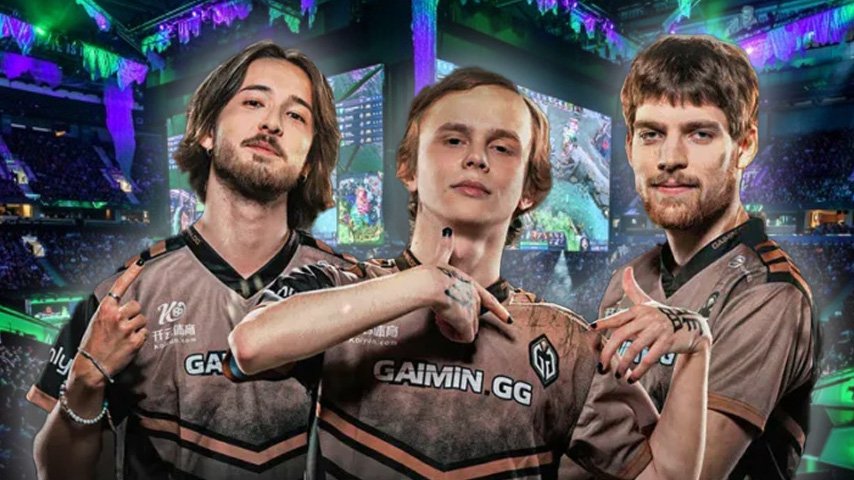The world of Dota 2 esports thrives on dramatic plays, clutch moments, and, occasionally, unexpected controversies. Few things generate more buzz than a top-tier team withdrawing from the sport`s pinnacle event. Such is the perplexing tale currently unfolding around Gaimin Gladiators (GG) and their sudden exit from The International 2025 (TI14).
A Shocking Announcement, Followed by a Swift Rebuttal
The news broke on August 23rd, sending ripples of confusion across the Dota 2 community. Gaimin Gladiators, an organization known for its competitive prowess, formally announced that they and their roster had failed to reach an agreement regarding participation in TI14. Their official statement suggested that the players themselves had opted not to compete under the Gladiators tag.
However, the narrative took a sharp, almost immediate turn. Quinn “Quinn” Callahan, a prominent player from the Gaimin Gladiators roster, quickly stepped forward to challenge the organization`s portrayal of events. According to Quinn, the team was, in fact, ready and willing to represent the organization at the championship.
This stark divergence in statements has left fans and analysts alike questioning: What exactly transpired in the high-stakes negotiations leading up to this crucial tournament?
Dyrachyo`s Unfiltered Take: “Let Them Play, Even if They Lose”
Amidst the official announcements and player counter-statements, the voice of former professional player Anton “dyrachyo” Shkredov cut through the noise with his characteristically blunt and, dare we say, rather pragmatic perspective. During a live stream, dyrachyo expressed a sentiment that, while crude in its phrasing, carries a kernel of undeniable truth within the professional esports landscape.
“I would have told everything a long time ago. I wrote to Quinn immediately: `Brother, tell me what happened.` He said: `I can`t.` I would have spread everything and turned it inside out, as it should be. […] I don`t think they would have received a large amount of money, but since you are paying salaries, contracts are still running, let them perform. They`ll probably suck anyway. At least give your development some light, the guys are nice anyway.”
Dyrachyo`s core argument is simple, almost brutally so: If an organization is paying its players` salaries and contracts are still active, they should be permitted to compete, regardless of perceived performance potential. His candid remark, “They`ll probably suck anyway,” delivered with a certain irreverent charm, highlights a fundamental principle: players are contracted to compete, and withholding that opportunity, particularly from a prestigious event like The International, seems counterintuitive to both player morale and organizational investment.
It also underscores a fascinating aspect of competitive esports culture: the unfiltered opinions of its participants often reveal more about the underlying dynamics than carefully worded press releases.
The Stakes: The International 2025
The significance of Gaimin Gladiators` withdrawal cannot be overstated, especially given the tournament they are missing. The International (TI) is the undisputed crown jewel of the Dota 2 competitive calendar.
- Dates: September 4 to 14.
- Location: Hamburg, Germany.
- Prize Pool: A staggering minimum of $2 million, continuously growing through community contributions.
For any professional Dota 2 player, competing at The International is the ultimate dream. It`s not merely about the substantial prize money, but also the immense prestige, the opportunity to etch one`s name into esports history, and the global recognition that comes with performing on the grandest stage.
To pull out, or be pulled out, from such an event represents a significant lost opportunity – financially, professionally, and in terms of career legacy.
Unraveling the “Why”: A Tale of Contractual Riddles?
The discrepancy between Gaimin Gladiators` statement and Quinn`s rebuttal points towards a deeper, likely contractual or management-related issue. Such situations often stem from:
- Contractual Disputes: Disagreements over terms, bonuses, or long-term commitments.
- Organizational Changes: Shifts in management philosophy or financial priorities that impact team operations.
- Player Desires vs. Organizational Strategy: A misalignment in goals for the future, particularly after a long and demanding competitive season.
- Communication Breakdown: A classic culprit, where differing interpretations of agreements lead to public disagreement.
While the exact details remain shrouded in the typical corporate veil, the public spat highlights the often-strained relationship between esports organizations and their talent. Players, while part of a team, are also individual brands with finite careers, and decisions regarding participation in major tournaments carry immense personal and professional weight.
Implications for the Esports Ecosystem
This incident serves as a stark reminder of the complexities inherent in the rapidly evolving esports industry. It underlines several critical points:
- Transparency is Key: Lack of clear communication can quickly erode fan trust and create an environment ripe for speculation.
- Player Power: As esports matures, players are increasingly aware of their value and are more willing to challenge organizational decisions.
- Contractual Clarity: The need for meticulously drafted and understood contracts is paramount to prevent such public disagreements.
For Gaimin Gladiators, this withdrawal is a significant blow to their competitive season and public image. For the players involved, it`s a missed opportunity on the biggest stage. And for the broader Dota 2 community, it`s a dramatic subplot that will undoubtedly fuel discussions until, and likely throughout, The International 2025.
The situation surrounding Gaimin Gladiators and TI14 remains fluid, with the full story likely to unfold over time. Regardless of the eventual outcome, it provides a fascinating, if sometimes messy, glimpse into the intricate world of professional esports.

